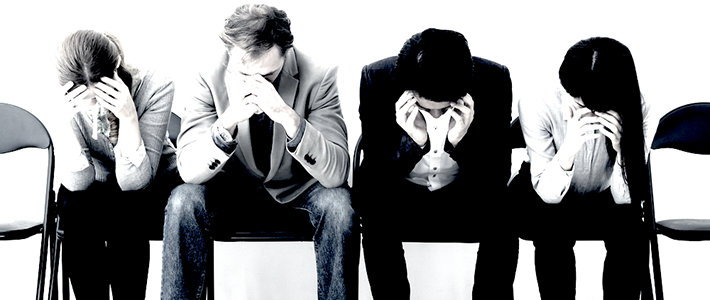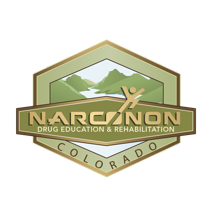Believe it or Not, Addiction is Everyone’s Problem

I don’t know about you but I am tired of hearing people say “I’m not the one using drugs so their addiction is not my problem!” While it is true that no one is ultimately responsible for someone else’s recovery that doesn’t mean that addiction isn’t their problem. Even if you are not addicted yourself addiction has an impact on you whether you want to believe it or not.
The biggest lie that an addict tells themselves is that they are the only one who they are hurting by using drugs or abusing alcohol. Whether any person wants to admit it the idea that personal choices only affect ourselves could not be further from the truth. I don’t know how many people someone thinks they can fool with this logic but I would assume the biggest person they are trying to fool would be themselves.
So how many people does one addiction touch? The addict themselves, their parents, their children, their brothers, sisters, grandparents, aunts, uncles, cousins, and spouses. These are the obvious answers but how about the not so obvious answers? Co-workers, bosses, teachers, people driving on the street, business owners, children in the park the list goes on and on.
According to a report done by the Substance Abuse and Mental Health Services Administration (SAMHSA) in 2016, there were an estimated 21 million people aged 12 or older who needed addiction treatment. This equals out to about 1 in 13 people. Taking into consideration that these statistics are from a few years ago and that the drug problem has continued to grow it would be safe to assume that these numbers are currently higher.
Considering that there are currently so many people who are struggling with addiction it would be safe to say that everyone is somehow connected to at least one person that is an addict. This isn’t just an individual problem, this is a communal problem and as such should be addressed accordingly.
Studies have shown that an investment in addiction treatment yields high returns for society as a whole. Reports from the National Institute on Drug Abuse (NIDA) “Every dollar invested in addiction treatment programs yields a return of between $4 and $7 in reduced drug-related crime, criminal justice costs, and theft. When savings related to health care are included, total savings can exceed costs by a ratio of 12 to 1.”
Many would like to argue that it isn’t their fault someone else is addicted so it shouldn’t be their responsibility to help fix the problem. Statements like these do not take into consideration that finding more effective means of handling the overwhelming numbers of addiction in The United States would benefit the country as a whole.
Instead of focusing on assigning blame and shame wouldn’t it be more productive to focus on creating more solutions? Saying “It’s not my fault they chose to do drugs so I shouldn’t have to worry about fixing it” does nothing but perpetuate the problem. It doesn’t matter if it’s your fault or not, the problem is still impacting you so why not try and help make things better?
How an individual’s recovery from addiction benefits everyone:

1. Safer Roads. When there are fewer people in active addiction there will be fewer people driving under the influence of drugs or alcohol. This will lead to fewer accidents and deaths caused by impaired driving.
2. Reduced Crime. The very nature of addiction often leads to criminal behavior in order to sustain the habit. From theft to possession the potential crimes are endless.
3. Increased work productivity. It is no secret that an addiction contributes to decreased work performance. When people are in recovery they are better able to perform well at their jobs. This leads to a decrease in workplace accidents and an overall healthier work environment.
4. Improved relationships. People who are in addiction recovery are better equipped to be helpful and beneficial to those around them. Improved parenting and relationships ultimately benefit society as a whole.
5. Reduced unpaid health care bills. Lower addiction rates would lead to a decrease in bills from drug-seeking emergency room visits that often go unpaid. These costs often get passed onto taxpayers.
6. Cleaner parks and public areas. The increased amount of intravenous drug users has lead to an alarming amount of used needles being left behind in public places. This type of littering has proven to be a health hazard for all.
7. Reduced criminal justice costs. A study done in 2012 by The Vera Institute of Justice found that the total amount of money taxpayers paid in prison costs for a combination of 40 states was $39 billion. This averaged out to about $31,286 of taxpayer money spent per inmate in one year. Consider how many of those people were incarcerated due to addiction and then consider how much money taxpayers would have saved had those prisoners been in recovery instead.
8. Improved economy. With more people spending less money on drugs and alcohol the entire economy benefit from more money being invested back into local communities.
9. A decreased burden on social services. With lower addiction rates comes a decrease in the need for federally funded child protective services due to abuse and neglect stemming from addiction.
10. An increased amount of productive members of society. The more people who are able to contribute to society as a whole the better that community will be.
Since studies show that the amount of money invested in treatment benefits everyone connected to an addict why aren’t more people on board with making treatment more accessible? The most important benefits of addiction recovery can’t be measured in finances because they are more meaningful than money. The benefit of parents who take care of their children, workers who are productive, drivers that are safe and don’t endanger others are immeasurably more beneficial to everyone than financial resources spent on treatment.
Sources:
- The New York Times
- National Institute on Drug Abuse (NIDA)
- Vera: The Price of Prisons
- The Vera Institute of Justice
- The Fort Collins Coloradoan: Needles in Parks Pose Increasing Hazard
- Substance Abuse and Mental Health Services Administration. (2017). Key substance use and mental health indicators in the United States: Results from the 2016 National Survey on Drug Use and Health (HHS Publication No. SMA 17-5044, NSDUH Series H-52). Rockville, MD: Center for Behavioral Health Statistics and Quality, Substance Abuse and Mental Health Services Administration.


